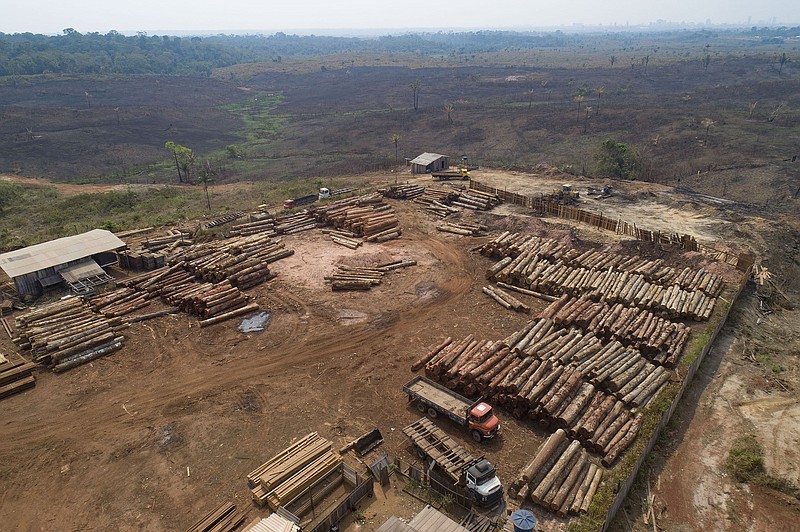Brazil's Amazon rain forest lost more trees over the past year than in any year since 2006.
Satellite data revealed that deforestation rose by nearly 22% from last year to reach its highest level in 15 years, Brazil's National Institute for Space Research found, in a country which is home to most of the world's largest rain forest.
The numbers come after leaders of more than 100 nations promised at the COP26 climate summit this month to end deforestation over the next decade.
Brazilian President Jair Bolsonaro, who had made campaign promises to open the Amazon to business development, missed the climate summit in Glasgow, Scotland, though his country joined the global pledge to save the world's trees.
With the rate of destruction not slowing, critics questioned whether Brazil can meet its target, and some accused Bolsonaro's administration of delaying the release of the latest deforestation benchmark until after the U.N. summit, which the country's environment minister denied.
The Amazon in Brazil lost more than 5,000 square miles of rain forest from August 2020 to July 2021, the government research center said in a report released Thursday. It was the fourth year in a row that the rate of deforestation rose, it said.
Climate activists warn of the risks of letting global pledges fall short: The devastation of forests drives up greenhouse gas emissions, and Global Forest Watch found that the world lost 1 billion acres of forest between 2001 and 2020.
The rain forest in Latin America's largest country, under pressure from farming, logging and wildfires, is at the heart of the struggle to limit emissions. Trees absorb carbon dioxide when they grow, slowing global warming, but release it into the atmosphere when they decay, or are cut or burned.
Brazilian Environment Minister Joaquim Leite called the new figures Thursday "unacceptable" and said the government should do more. He said at a news conference that the data did not reflect recent curbs on environmental crimes.
However, advocacy groups such as the Climate Observatory blamed policies such as road expansion and cuts in environmental fines for making "the world's largest rain forest disappear before our eyes."
It accused the government of deliberately delaying the report's publication, while the World Wildlife Fund said in a statement: "This is the real Brazil that the Bolsonaro administration is trying to hide with its fantasy speeches and greenwashing."
The Ministry of Science and Technology did not immediately respond to a request for comment on the allegation. While the space research agency's workers union said the government would have known about the annual report, which was ready in October, Leite told reporters that he had seen the data just this week: "Exactly like you."
